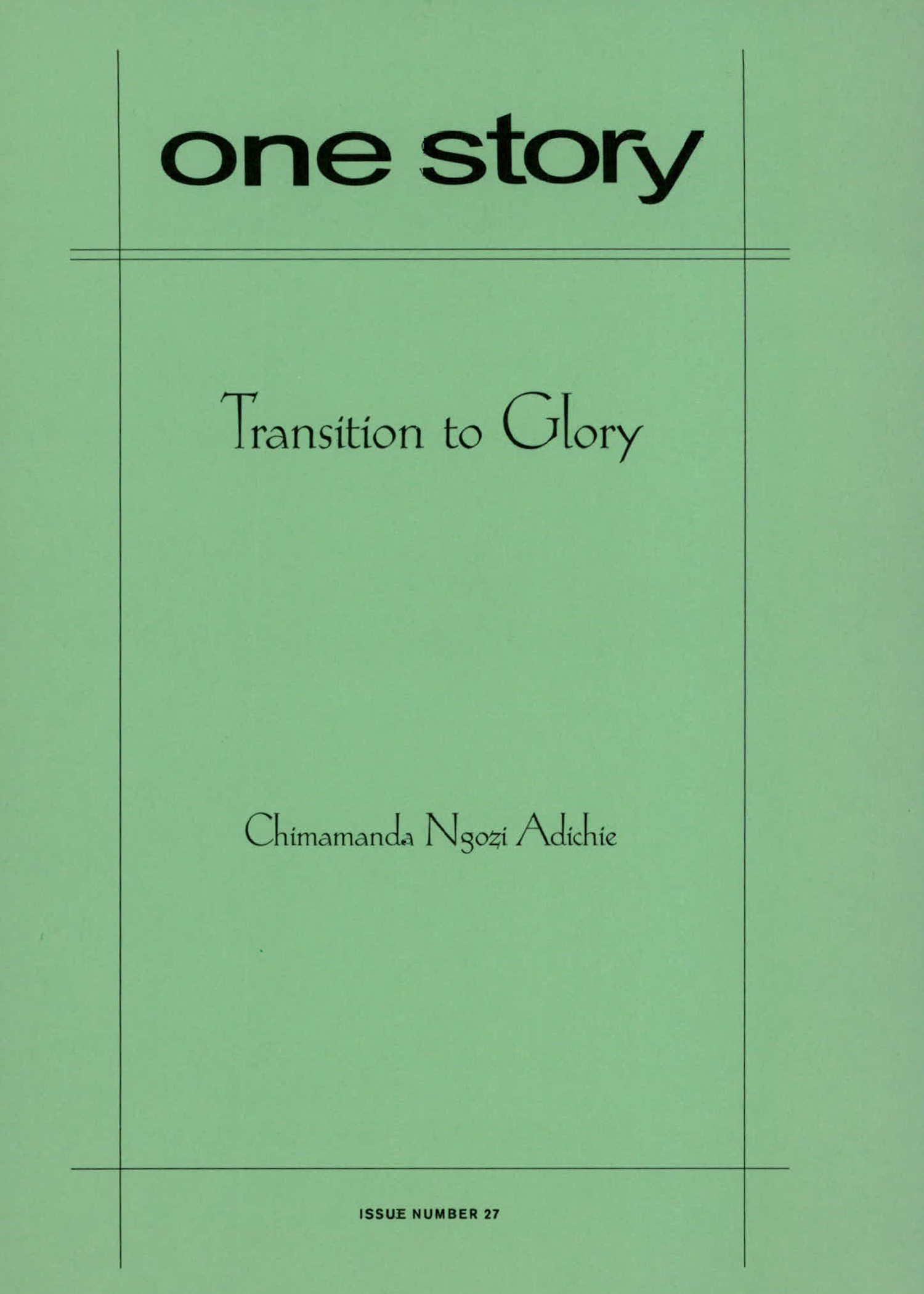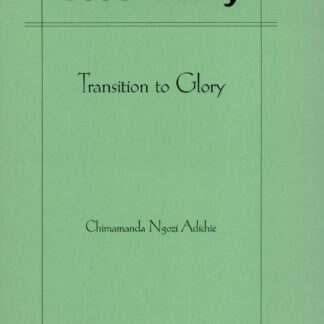
Transition to Glory
$2.50
34 in stock
Excerpt
Her clothes smell of spices. It is the middle of the rainy season and as she cooks jollof rice, the ceiling fan is off, the rain slaps against the closed windows and the aroma from her pot rises in heady wafts and soaks into the living room curtains, into her clothes, into the bedcover in her tiny room. Later, she pulls her blouse over her head before going in the bathroom and stops to breathe in curry and maggi and thyme. And doing that, she catches her breath, catches a sob in her throat. Yet, she didn’t even cook much for Agha. Only once in fact, the Saturday he came by from his tennis club. But it is the act of trying to catch something, or recapture something, that causes her pain, that causes the choking sounds to come out of her. When she lies in bed and waits for sleep, when she tosses and clutches her pillow, she smells on it the scent of spices gone stale. And she gets up and rips off her pillowcase and her bed covers.
Chimamanda Ngozi Adichie
Chimamanda Ngozi Adichie grew up in Nigeria and moved to the United States to attend college. In 2002, she was short-listed for the Caine Prize for African Writing. Her short stories have appeared in Zoetrope All-Story and The Iowa Review, among others, and have won awards from the Commonwealth Broadcasting Association and the BBC. Purple Hibiscus, her first novel, will be published by Algonquin in October 2003.
Q&A by Hannah Tinti
- HT: Where did the idea for this story come from?
- CN: I think the idea first came on a visit to London. In Trafalgar Square, I watched a couple taking pictures of pigeons and there was something about them, an uncertain quality to their happiness, that made me want to write about losing somebody you love but are not sure you are even allowed to love, somebody you can’t really mourn because you don’t have the approval of society to do so. Also, I find that I unconsciously write a lot about the peculiarities of marriage in Nigeria and the Nigerian Diaspora. I have no idea why, maybe it has something to do with my distrust of the institution! And I have always been fascinated by Lagos, Nigeria’s throbbing, chaotic commercial center. I wanted to write a Lagos story, but I also wanted to have a scene set in Nsukka, the sleepy town where I grew up. And then of course a London scene had to come in, because it did all start there. And so, the story emerged.
- HT: What was the most challenging aspect of writing this story?
- CN: Balancing the shift from the past to present tense. It was something I wanted to do, because it was different, but I was wary of losing the reader along the way. It took me a while to get to the point where I was completely comfortable with it. And Agha was difficult to write. I wanted more of his effect rather than him, in the story, but I also wanted the little we see of him to be complex and, like their affair, not easily resolved.
- HT: Ozioma and Didi are at odds in many ways. How does your writing explore women’s roles in African society?
- CN: I am Igbo and Igbo women are not quite the stereotypical hapless, subjugated creatures. That said, I am very interested in exploring the many double standards in the rules that apply to men and women in Nigeria, with women usually getting less privileges. But that is true for most of the world. What I am even more interested in questioning, though, is how much we African women are accomplices ourselves, how much we are willing to accept and agree with. And why.
- HT: How long did it take you to complete this story?
- CN: The first line came to me years ago. I was cooking in my sister’s house in Connecticut, the windows were closed, the heater on and when the jollof rice and pepper soup were done, I realized my clothes smelled of every spice I’d used. It was just that - a line - for a long time, until I got the idea a few years later, while visiting London, to explore an extra-marital affair set largely in Lagos. The rest came organically, and it took a few weeks to complete a first draft.
- HT: What is the best bit of advice about writing you have ever received?
- CN: Jason Cowley said once that there is never any reason, in fiction, to rhapsodize the ordinary. In many ways, that statement was about knowing when to rein yourself in. It was appropriate for me, too, because I am prone to get carried away describing just how green the grass is.
- HT: What are you working on now?
- CN: I’m working on a novel set in Biafra during the Nigerian civil war.
